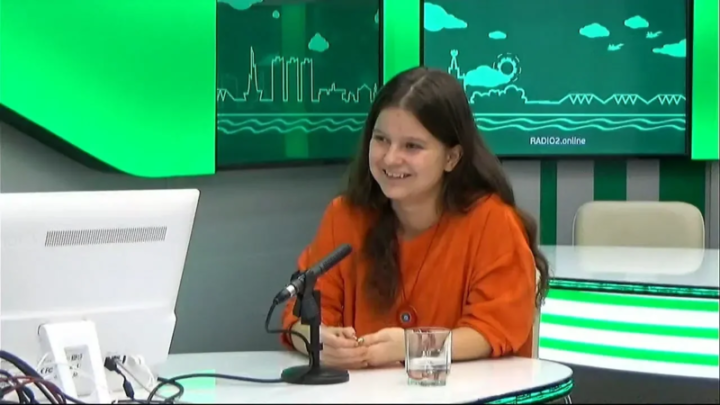Human rights groups have labeled Tsvetkova a prisoner of conscience
Written by Tanya Lokot
Yulia Tsvetkova, an LGBT activist and feminist artist who is facing a prison sentence on charges of distributing pornographic images for sharing “body-positive” drawings on social media, has announced she is going on hunger strike.
As Tsvetkova herself is barred from using the internet and social media, her mother, Anna Khodyreva, shared a Facebook update on behalf of her daughter on May 1. In the post, Tsvetkova says the main demand behind her decision is for the court to conduct her trial more quickly. The investigation and criminal proceedings in the activist’s case have been ongoing for almost two years.
In the lengthy Facebook statement, her “first public post in eight months”, Yulia Tsvetkova reflects on her motivations for embarking on a hunger strike:
They say that a hunger strike is announced out of despair, and yes, it’s hard not to agree with that. It is also believed to be a measure that people only use in penal colonies. That is not quite true. A hunger strike is a means of peaceful protest against injustice that has been used by many artists and activists around the world, within and outside of the physical restriction of their freedom. A hunger strike is also a way to draw attention to a personal or global problem.
Recognizing Russia’s many political prisoners and “inconceivable sentences for ‘words and thoughts’”, Tsvetkova focuses on a “a slightly different problem, one perhaps less easily perceptible” – that of drawn out administrative criminal proceedings and court hearings, which are typical for Russia and often see defendants spending months or years in pre-trial detention or under house arrest.
Two years of investigation. Two years of stolen life. For reposts. And these two years cannot even be counted as time served, because I am under the mildest measure of restraint.
And my case is not unique. Many people spend years in pre-trial detention, under arrest, or under investigation. Many go through hell even before they are sentenced. The system has all the time; it has nowhere to rush. It doesn’t care about people and their lives. And it is almost impossible to defend yourself from the system.
In her post, Tsvetkova underscores the burden and the pain of the “invisible torture” of the less evident restrictions on civic freedom imposed by the state judicial system. She says she is barely able to withstand the isolation and the inability to work due to being barred from any social contact.
People who endure the torture of waiting, of the unknown, of isolation are worthy of not being forgotten. You can’t measure who is suffering more or more intensely or more properly. The simple truth is that no one should face persecution for being different or inconvenient.
Outlining why she is going on hunger strike, the activist writes that she is ready to face imprisonment and isn’t asking to be acquitted, but demands swift due process, an open trial, and access to a public defender to exercise her legal rights.
My demand is simple. I am asking the state to “man up”.
You want to condemn me? Fine. But do it publicly.
I demand that my trial be open to the public, since the reasons for closing it down are flimsy at best.
I demand the opportunity to defend myself through all legal means, and for a public defender to be granted access to the trial. And I demand that my trial proceed without delay. That hearings be scheduled more often than once a month.
Tsvetkova’s statement ends on a vulnerable note: she admits her fear, but also says she cannot make peace with her current circumstances and cannot afford “the opportunity to abstract myself and think globally”.
Am I scared? Yes, I think so. But I don’t have much to lose. My health has been undermined for some time now. Thanks to the actions of the state, I have almost no ties left to work, few colleagues or friends. I have only my dignity, and now I am glad that I am doing what my conscience tells me to.
The original article can be found here






